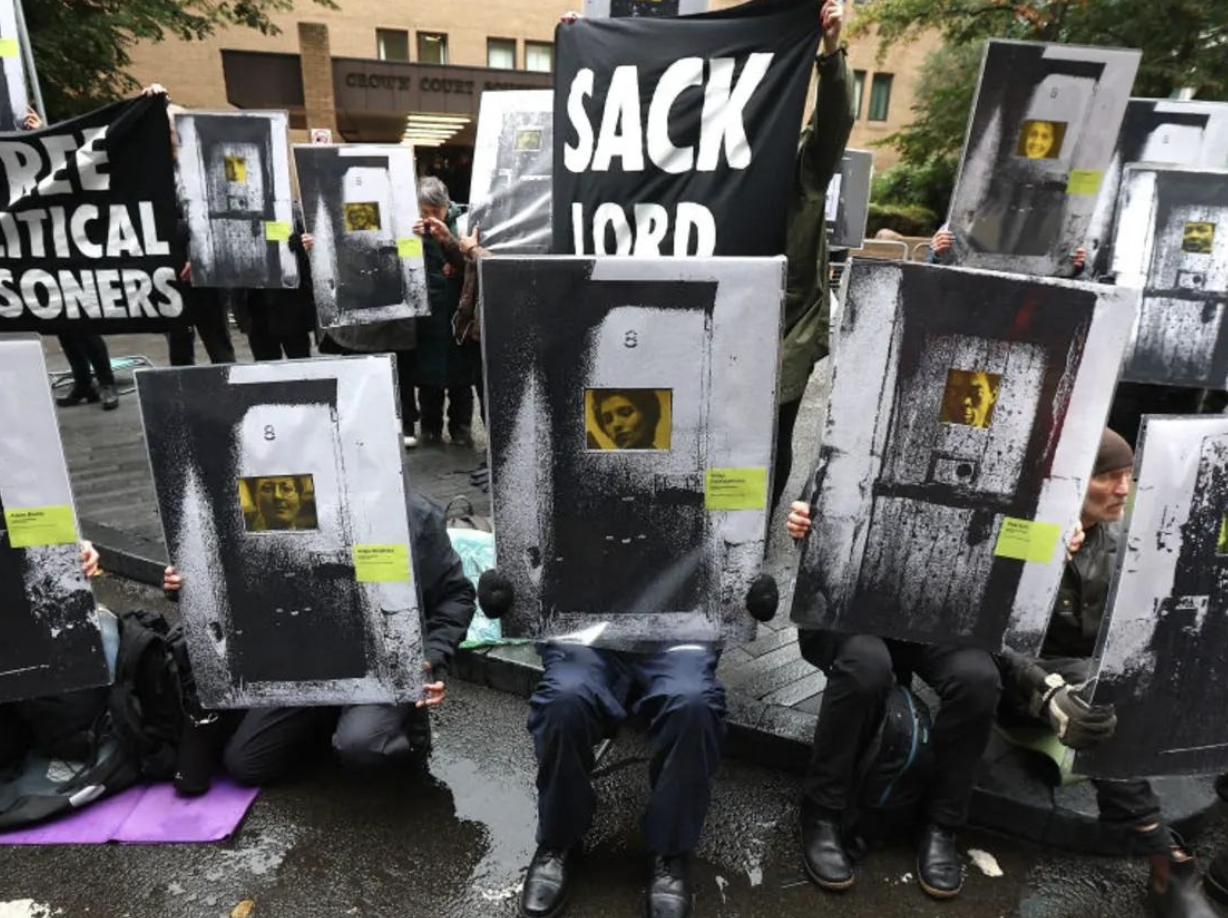In a repeat protest, three Just Stop Oil activists threw tomato soup at two of Vincent van Gogh’s famous “Sunflowers” paintings at the National Gallery in London. The attack, which occurred on Friday, came just hours after two other members of the same group were sentenced for a similar stunt in 2022. The paintings, one owned by the London gallery and the other on loan from the Philadelphia Museum of Art, were unharmed due to protective glass. The activists were arrested shortly after the incident.
Repeat Offenders and Sentencing
The protest mirrored the actions of Phoebe Plummer, 23, and Anna Holland, 22, who threw soup on one of the “Sunflowers” in 2022 and were sentenced earlier that day. Plummer received a two-year prison sentence, while Holland was sentenced to 20 months for criminal damage. In the 2022 incident, the soup caused £10,000 worth of damage to the frame, but the painting remained intact.
Judge Christopher Hehir, who presided over the case, condemned the activists’ actions, stating they came dangerously close to destroying a “priceless” artwork. He rejected Plummer’s claim of being a political prisoner, calling it “self-indulgent” and disrespectful to those facing real persecution worldwide.
Escalating Protests and Crackdowns
This latest act of vandalism is part of a broader wave of disruptive protests by Just Stop Oil, which has gained attention by targeting cultural events, sporting matches, and traffic systems. The group aims to bring attention to climate change by staging high-profile disruptions. Recent sentences for non-violent protests have become increasingly severe, with Just Stop Oil co-founder Roger Hallam and four others jailed in July for conspiracy to block the M25 motorway, receiving record-long sentences for non-violent civil disobedience.
Despite the controversial tactics, Just Stop Oil remains committed to using disruption as a tool for raising awareness about environmental issues.





